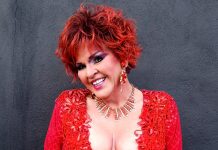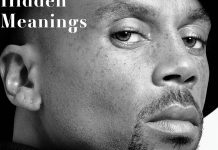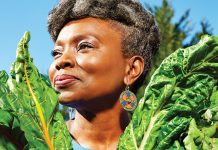
Photograph by by Our Labor of Love
Planning a wedding is never easy, but it can be especially challenging if you’re LGBTQ+. How do you find equality-minded vendors? What if both partners are wearing a tux? Atlanta writer Kirsten Palladino sought to answer these questions when she cofounded the LGBTQ+ wedding website Equally Wed in 2010. Now she’s turned the website into a guidebook of the same name, featuring everything from a glossary of LBGTQ+ friendly wedding terms to recommended poems for an inclusive ceremony. On June 1, she’ll celebrate the book’s publication with a party hosted by Charis Books at the Phillip Rush Center. We spoke to Palladino about writing the book, how equal wedding planning has changed since the Supreme Court decision, and her own wedding.
What made you decide to turn the website into a book?
I’ve had the Equally Wed website for seven years now. I’ve been sent wedding books for all kinds of reasons: books on budget planning, high-end weddings, etc. But in all these books, there is the assumption if you’re female-bodied, you’re a bride, and if you’re male-bodied, you’re a groom. For the most part, these books use language like “bride” and “groom,” and in same-sex marriage books, they use language like “bride and bride” and “groom and groom.” This is pigeonholing for the LGBTQ+ community. It’s uncomfortable to do mental gymnastics of “where do I fit into this?” The groom’s family pays for flowers and the limo, but what if there’s no groom? Or what if there are two of us buying wedding gowns? Most wedding books don’t include those specific nuances. I wanted to be able to wholeheartedly recommend an LGBTQ+ wedding book, and there wasn’t one, so I wrote my own. I wanted it to be inclusive, gender neutral, and void of assumptions.
What was the writing and research process like for the book compared to the website?
I’m a writer and editor first, and a web content creator second, so I thoroughly enjoyed working on these longer pieces with a book. I want this book to be something you can go back to again and again throughout the wedding planning process. We had different people contribute from the wedding industry, like Ron Ben-Israel, a cake maker out of New York, and different couples gave me their experiences. I did research to back up what I already believed. I was just making sure the information I was passing out was validated by other wedding experts; my favorite florist, Liz Gudmundsson of Adaptation Floral Design, reviewed all of my flower stuff.
Where does the website go from here, and are you still interested in the topic?
The website will remain as it is, with daily updates about real weddings, inspiration, highlighting equality minded wedding vendors, etc. What really inspired me to start the website, in addition to celebrating love, is education—that’s where my focus is now. I’m educating wedding vendors on how to be more equality minded. There are people who are interested in equal weddings but are worried about saying the wrong things or don’t know how to attract LGBTQ+ customers. I’m also founded the Wedding Equality Alliance, which is a group of wedding professionals making a pledge to help change the wedding industry by making it more inclusive of LGBTQ+ couples and just being a wedding equality ally. I do speak and run workshops on this, but we need as many people out there as possible. It’s teaching things like, instead of contracts saying “bride and groom,” say “marrier,” “celebrant,” “partner,” “client.”
Have equal weddings gotten easier since the Supreme Court legalized same-sex marriage?
When I started Equally Wed with my wife and we came up with the name, one of my really good friends, a straight cisgender (a person who identifies with the gender associated with their birth sex) woman, said, “Isn’t that name too political?” At the time we only had marriage equality in six states. But we’re still fighting for visibility and validation. We celebrate love and LGBTQ+ relationships. We’re part of the social justice movement to be more inclusive and accepting. Unfortunately, it is still an issue. Every city, large and small, from New York to California, but especially in the South, has people who strongly oppose marriage equality, and they use a variety of defenses to excuse their homophobia and transphobia. Right now we’re embattled in a variety of states with a Religious Freedom Act, where people are relying on their religion to allow them to discriminate. When business owners have the freedom to discriminate against our community, that bleeds into the wedding industry, too.
Has writing about weddings all the time made you want to change yours?
Absolutely. I’ve wanted to have 10 different weddings now at least. There are things I wish we had done differently. As much as I love my brother-in-law getting the camcorder out, I wish we’d hired a videographer, but in June 2009, that wasn’t even a consideration for us. We got married here in Georgia, but now I might do a destination wedding. We have our 10-year anniversary in 2019, so maybe we’ll have a vow renewal.










![The North Carolina Museum of Natural Sciences’ newest exhibit is a [pre]historic first](https://cdn2.atlantamagazine.com/wp-content/uploads/sites/4/2024/04/DD-3-100x70.jpg)


